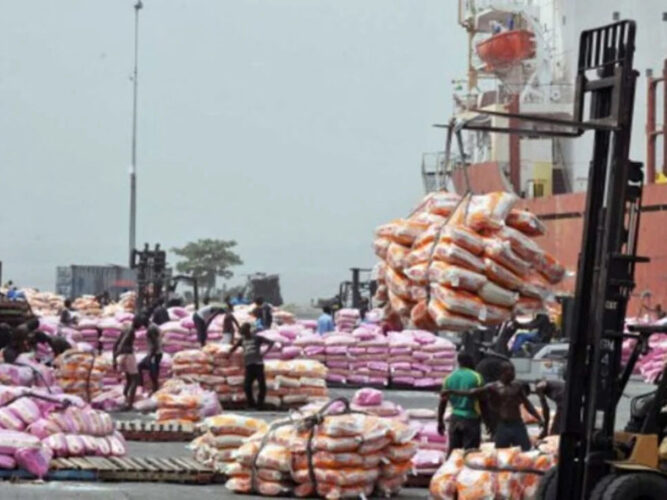The Nigeria Customs Service (NCS) has been instructed to begin implementing a zero percent import duty and exemption from Value-Added Tax (VAT) on basic food items, following the approval from President Bola Tinubu. The Ministry of Finance confirmed this directive in a letter sent to the NCS on August 8, 2024, and the NCS officially acknowledged the directive in a document shared on Wednesday.
In response, the Comptroller-General of the NCS, Bashir Adeniyi, ordered officials to start enforcing these measures. The circular, titled “Approval for the implementation of zero percent duty rate on basic food items,” outlined that the policy, effective from July 15 to December 31, 2024, applies to specific food commodities including maize, husked brown rice, wheat, grain beans, and millet.
The Deputy Comptroller-General, C.K. Niagwan, clarified that the policy is limited to the listed items and is intended for importers with milling capacity and a verifiable Backward Integration Programme (BIP). The Ministry of Finance will periodically provide the NCS with a list of approved importers and quotas to guide the importation process during the policy's duration.
RELATED: Food Prices Set to Drop as FG Suspends Taxes on Imported Food Items
This move follows the Federal Government's announcement on July 10 to suspend duties, tariffs, and taxes on food imports via land and sea borders, aiming to curb inflation. On August 7, the NCS confirmed that the duty waiver would be implemented within the week.
Finance Minister Wale Edun emphasized that this measure is intended to address the high cost of food items in Nigeria, with the duty rate on certain staples reduced to zero. Importers eligible for the waiver must demonstrate milling capacity and a commitment to sourcing raw materials locally through BIP.
Despite these efforts, the Comptroller-General of Customs noted that the government stands to lose approximately N188 billion in revenue due to the duty suspension on food imports. To ensure effective implementation, special corridors will be established for clearing food imports.









